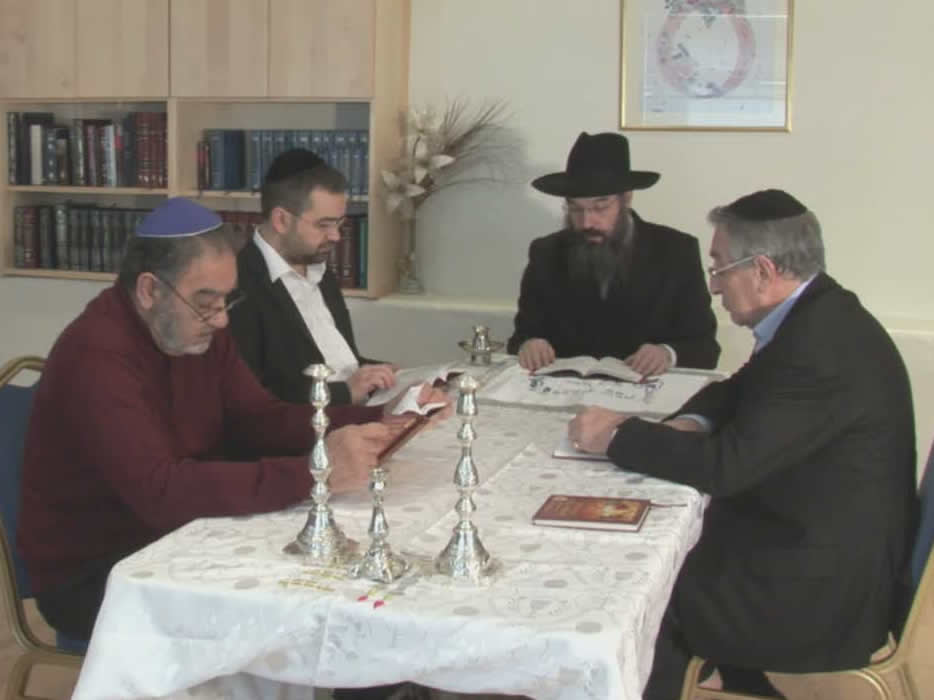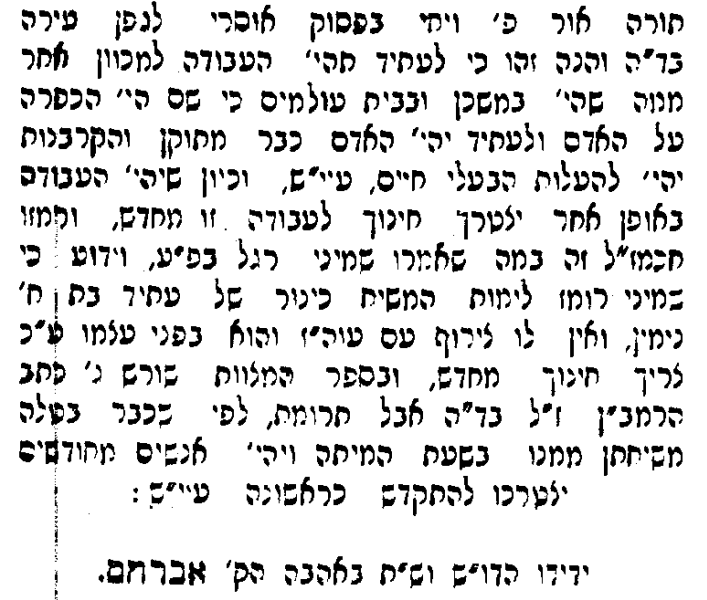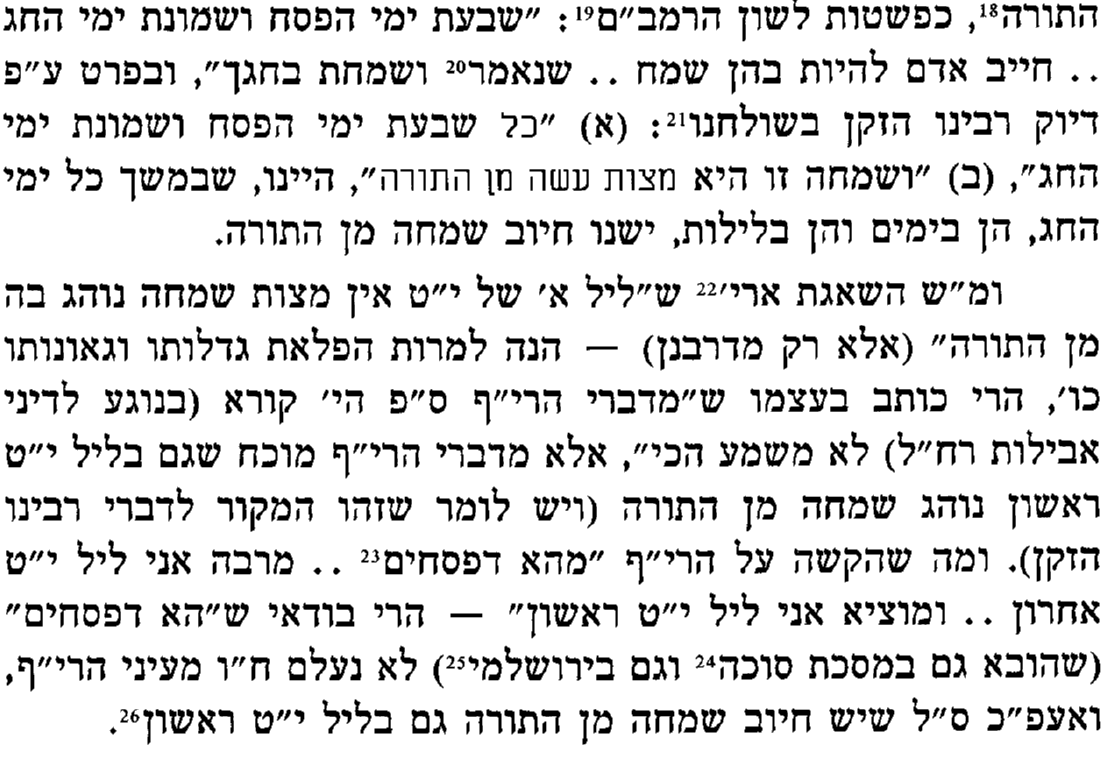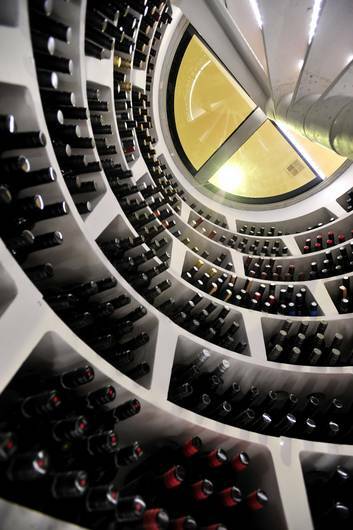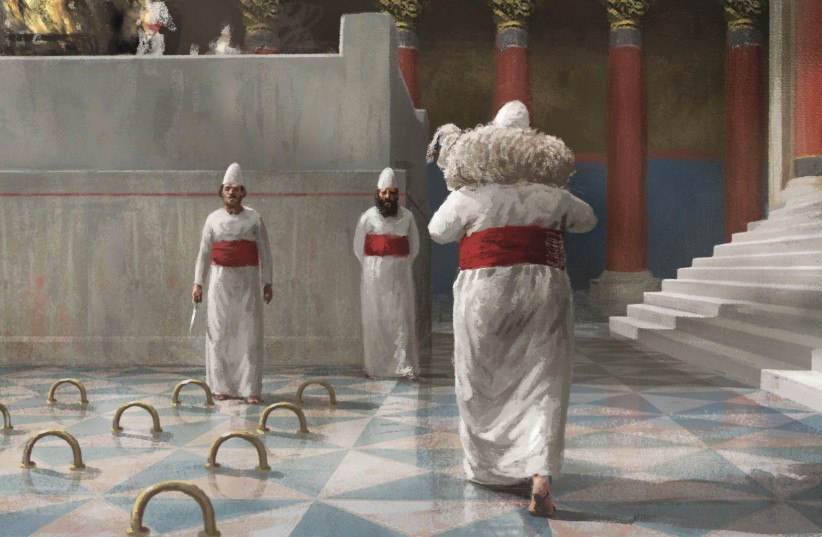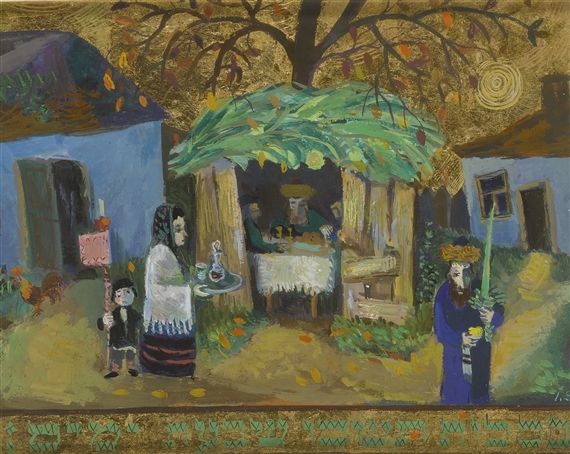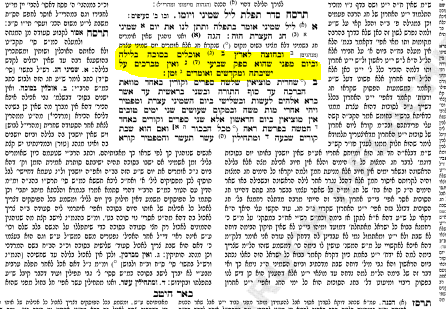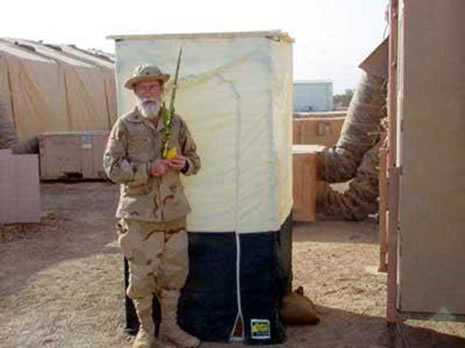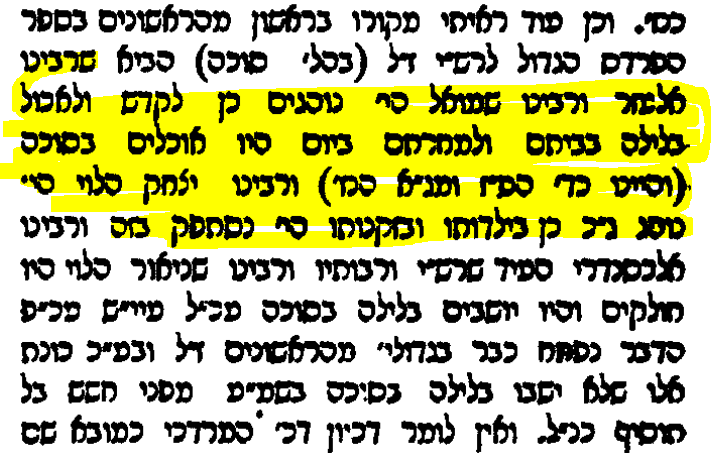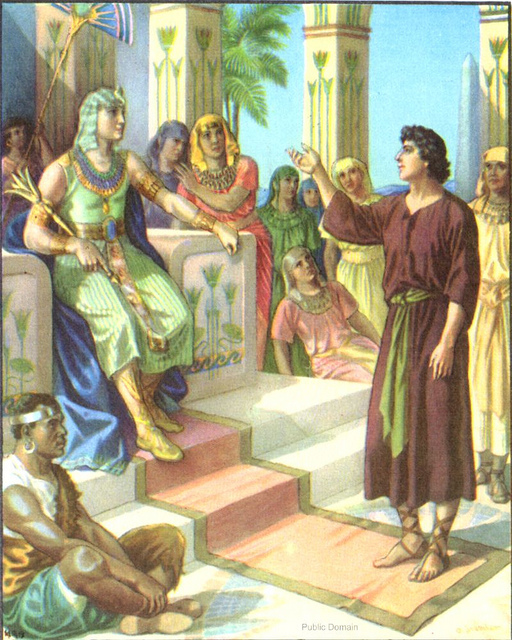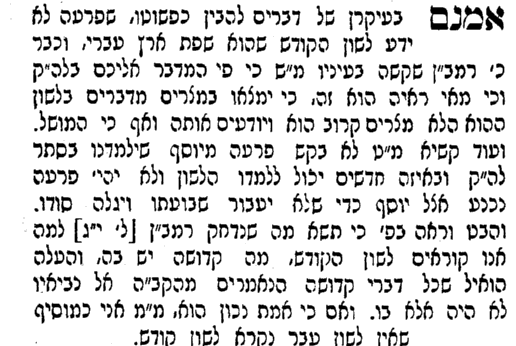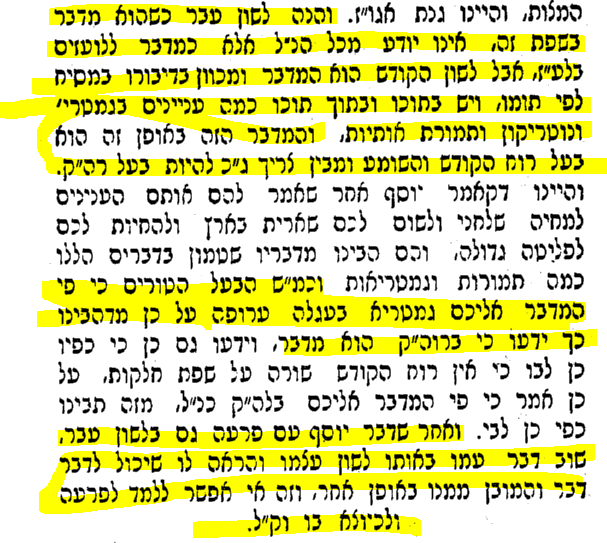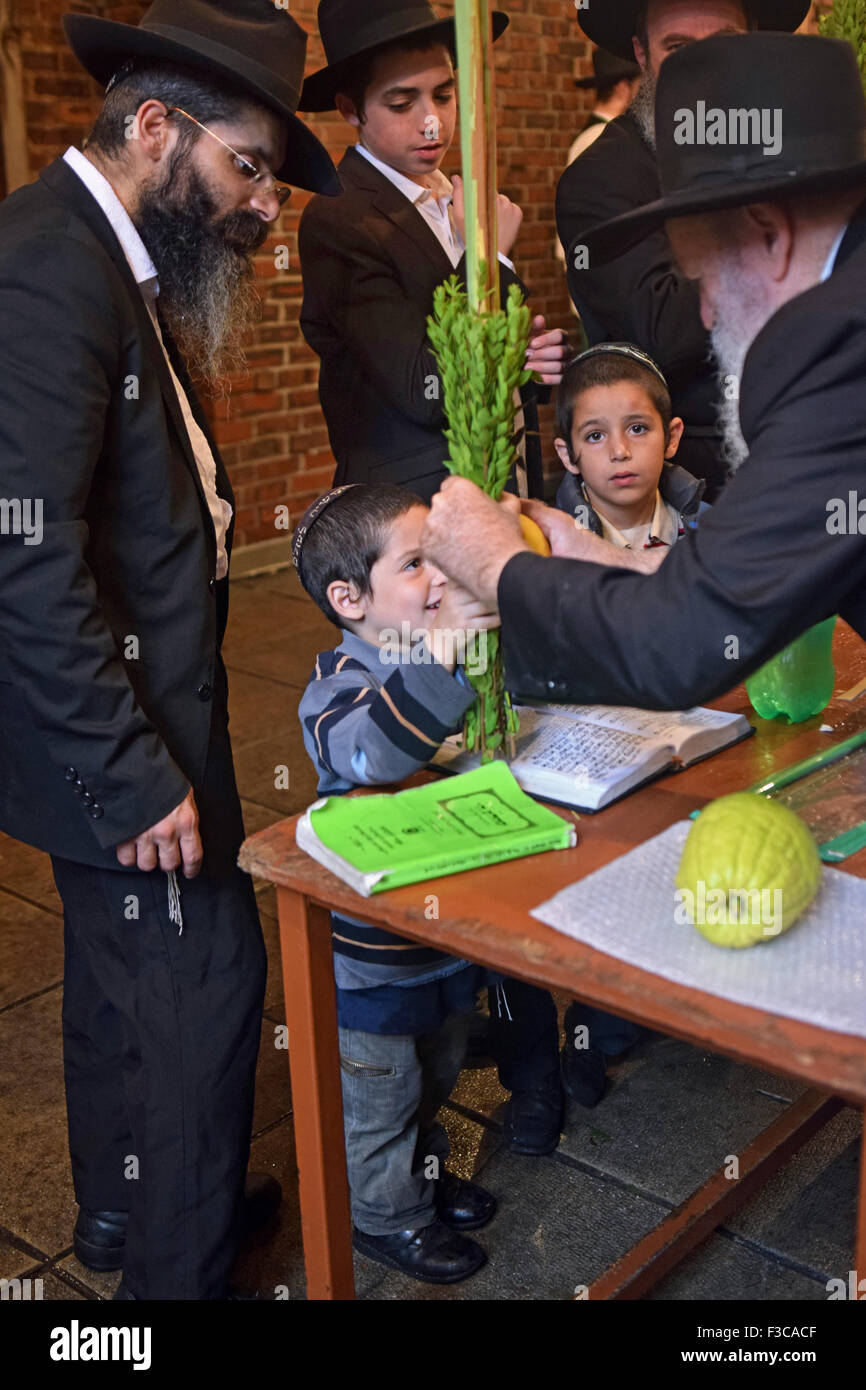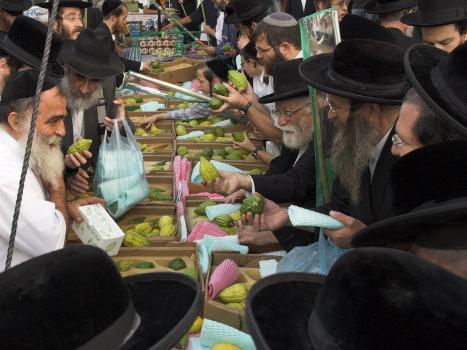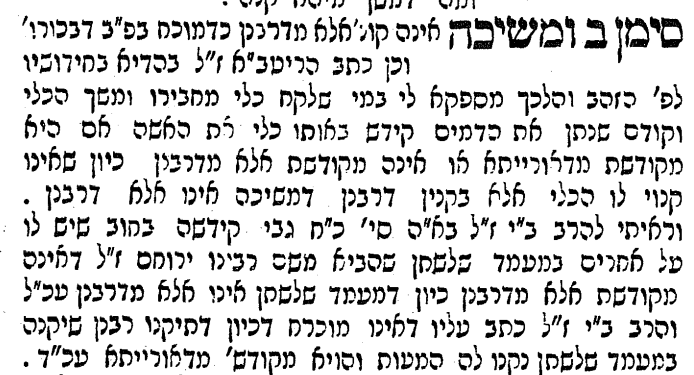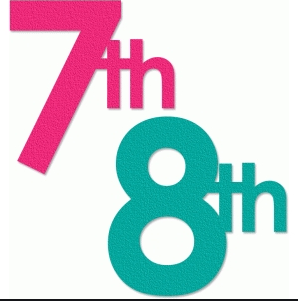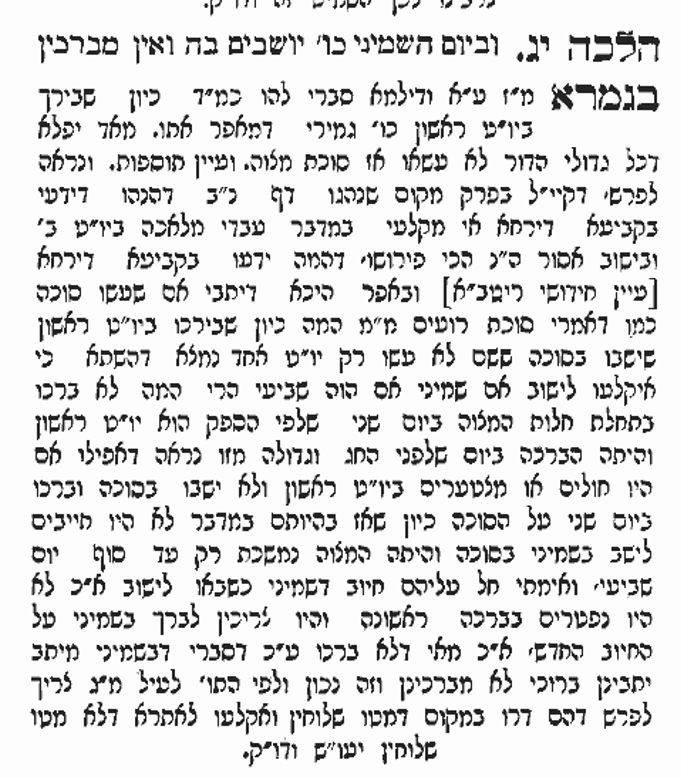BS”D
Sukkah 47b
Teves 24, 5783. January 17, 2023
1– Concerning שמיני עצרת, that it is a Yom Tov in and of itself (separate from Sukkos), our גמרא quotes Rebi Yuhuda who specifies four items that are required on Shemini Atzeres.
אַף שְׁמִינִי טָעוּן קׇרְבָּן וְשִׁיר וּבְרָכָה וְלִינָה.
2– Last week we discussed ברכה . Meaning that since it is a new Yom Tov we make a שהחיינו. (As opposed to שביעי של פסח which is an extension of Pesach).
3– שיר. A different song on the קרבן sung by the לויים in the בית המקדש. Rashi writes that he is unaware of this particular שיר. Tosfos however quotes from מסכת סופרים that a special שיר was said in Shul on שמיני עצרת, so perhaps that is the one sung in the בית המקדש.
למנצח על השמינית.

4- לינה. The need to stay overnight in Yerushalayim on a Yom Tov and whenever bringing a קרבן or ביכורים.
We discussed topics of the long Tosfos 47a.
- What causes the necessary overnight stay, Simchas Yom Tov or bringing the Korban.
- If one has בשר קרבן from the day before does he need to stay another night?
- Are the full 7 days of Sukkos and Pesach considered one continuous day? If yes, one would need to stay over the entire Yom Tov.
5 – Speaking of this interesting מצוה (spending more time in the area of the בית המקדש) we digressed to the topic of the Torah view on social issues.
Mentioned the book Social Vision by Professor Philip Wexler (may he have a רפואה שלימה) where he gathered the Rebbe’s view on many social issues, such as public education, criminal justice reform, women’s empowerment, and alternative energy. (See here)
See here Tzvi Freemans review.

6- Spending more time in the area of ירושלים.
We read the interesting take of the ספר החינוך on מצות מעשר, which forms a basic and broad explanation of the Torah’s outlook on social, behavioral and education of כלל ישראל. The חינוך explains the interaction between the common Jew and the intellectuals that mostly lived in ירושלים.
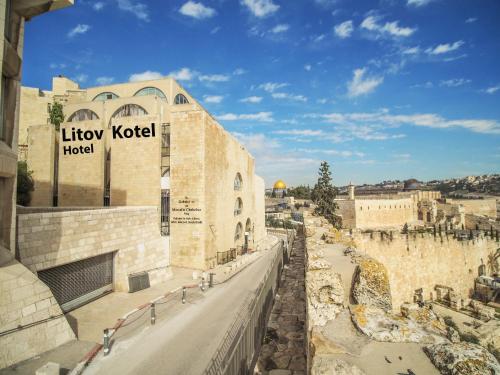
See full text below.
In short – The חינוך suggests an explanation on the entire idea and structure of מעשר. Specifically the מעשר that one needs to shlep up to be consumed in ירושלים. Like מעשר שני and מעשר בהמה. This is also the idea behind נטע רבעי.
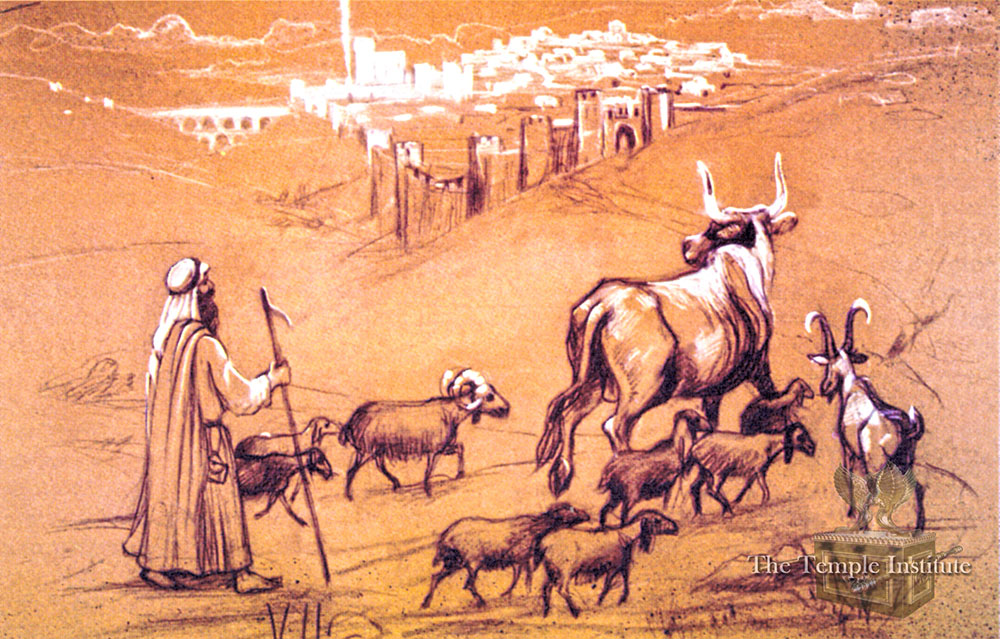
On the surface it seems the point of מעשר is to cause the common man to bring his מעשר fruits and animals to the city of ירושלים to be consumed and enjoyed in the vicinity of the בית המקדש.
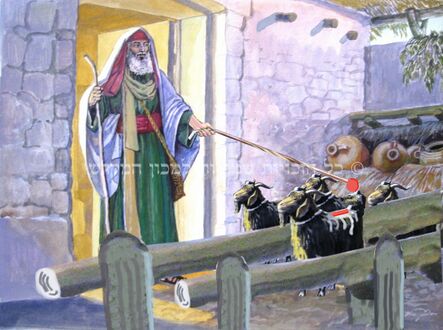
Suggests the ספר החינוך that there is much more behind these מצוות.
Being that the common man is busy and preoccupied in making a living and acquiring wealth, his head is in חומר, or as we call call it גשמיות. Studying Torah and delving in intellectual pursuits is not his thing.
Hashem therefore prescribed some מצוות that will cause the common man to make his way to ירושלים to mingle and interact with the חכמים in the vicinity of the בית המקדש where the סנהדרין is located and scholars and knowledge abound.
To perform these מצוות a person would either make the trip himself or send a son to spend time there and have the necessary provisions to eat while there – the מעשר!
He or his son, having acquired and absorbed Torah knowledge, will, upon their return to their families, have an influence on the entire household.
A family member that transmits knowledge to his family is far superior than listening to a Shiur from a local Rov – even with a weekly shiur. This is especially true to women and children.
In conclusion, the Sefer Hachinuch explains how the Mitzvot of Maaser Beheima, Maaser Sheni, and Neta Reva’i are not just practical commandments to bring a portion of one’s wealth to Jerusalem to eat and party. Rather, it’s to cause him to absorb רוחניות and תורה.
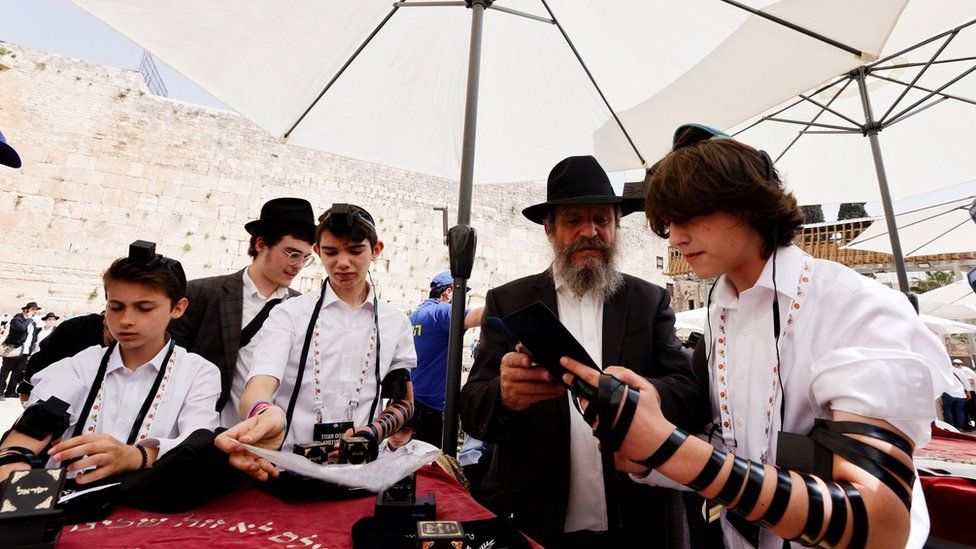
We suggested that perhaps the Mitzvah of לינה, is in the same vein.
Don’t just pop into the בית המקדש, attend your קרבן at 8:00 AM and take off with the 9:15 AM flight. The Torah wants you to spend some time with the holy and smart people in ירושלים. Take in some of their inspiration and intelligence. Upon your return home you will have what to share and disseminate amongst your family and friends.
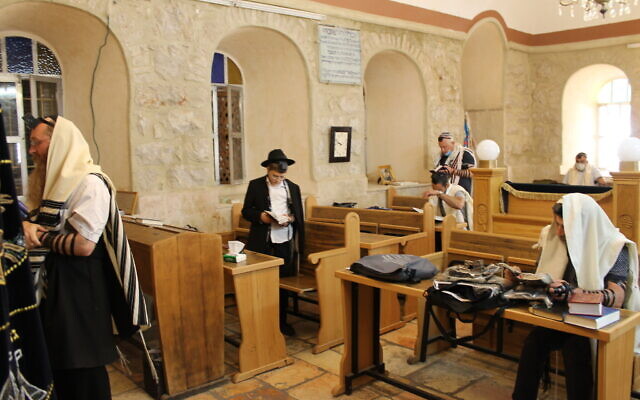
7– The גמרא quotes opinions on how the תנופה of ביכורים was done. According to one opinion, both the owner and the כהן need to lift the fruits together.

We learnt the Tosfos that quotes an interesting ירושלמי in Sota of how the תנופה was performed with the מנחת סוטה.
Here is the ירושלמי.
“The Cohen puts his hands under hers and performs the wave.”

Question: Does the Cohen put his hands under hers? Is that not objectionable. Is the bodily contact between the Cohen and an otherwise married woman not immoral?
Answer: He places a kerchief between his and her hands, not to touch the woman.
Question: Is that not a חציצה?
Answer: We use for this an elderly Cohen.
Another answer: You may even say, a young כהן, since bad inclinations do not happen at that hour.
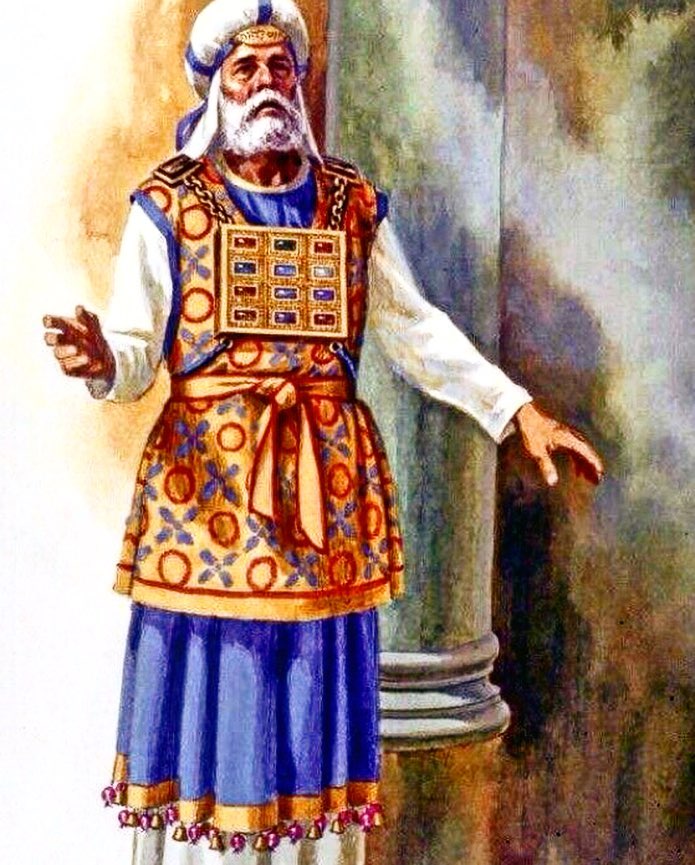
We mentioned that this principle, of ‘bad inclinations’ if only for a short time is not something the חכמים were concerned about is relevant in regards to placing the ring during certain Chupas.
8- We read the text of the לקוטי תורה of the Arizal where he writes that when in the בית המקדש a Kohen would look at the forehead of the individual, identify his sins and help him with his תשובה.

Asks the Ariza”l what about women? He answers that the כהן would see their faces as they were reflected in the כיור that was polished like a mirror.


We mentioned that some אחרונים discuss if what one sees in a mirror is considered in Halocho as ‘seeing’.
More on this topic in the future.
————————————
חינוך מצוה שס.
משרשי המצוה. שהאל ברוך הוא בחר בעם ישראל וחפץ למען צדקו
להיות כלם עוסקי תורתו ויודעי שמו, ובחכמתו משכם במצוה זו למען
ילמדו יקחו מוסר, כי יודע אלקים שרב בני אדם נמשכים אחר החמר
הפחות, בשגם הוא בשר, ולא יתנו נפשם בעמל התורה ובעסקה
תמיד,
על כן סבב בתבונתו ונתן להם מקום שידעו הכל דברי תורתו על כל
פנים, שאין ספק כי כל אדם נמשך לקבע דירתו במקום שממונו שם.
ולכן בהעלות כל איש מעשר כל בקר וצאן שלו שנה שנה במקום
שעסק החכמה והתורה שם והיא ירושלים, ששם הסנהדרין יודעי דעת
ומביני מדע, וכמו כן נעלה לשם מעשר תבואתנו בארבע שני השמטה,
כמו שידוע שמעשר שני נאכל שם, וכן נטע רבעי שנאכל שם, על כל
פנים או ילך שם בעל הממון עצמו ללמד תורה, או ישלח שם אחד
מבניו שילמד שם ויהיה נזון באותן פירות.
ומתוך כך יהיה בכל בית ובית מכל ישראל איש חכם יודע התורה,
אשר ילמד בחכמתו כל בית אביו, ובכן תמלא הארץ דעה את השם, כי
אם חכם אחד לבד יהיה בעיר או אפילו עשרה יהיו הרבה מבני אדם
שבעיר וכל שכן הנשים והילדים שלא יבואו לפניהם כי אם פעם אחת
בשנה, או אפילו ישמעו דבריהם פעם אחת בשבוע, ילכו לביתם
וישליכו כל דברי החכם אחרי גום, אבל בהיות המלמד בכל בית ובית
שוכן שם ערב ובקר וצהרים ויזהירם תמיד, אז יהיו כלם אנשים ונשים
וילדים מזהרין ועומדים, ולא ימצא ביניהם שום דבר חטא ועון, ועל ידי
זה יזכו למה שכתוב ויקרא כו יא יב ונתתי משכני בתוככם. ירמיה יא ד
והייתם לי לעם ואנכי אהיה לכם לאלהים.
It is from the roots of the commandment [that it is because] God chose the nation
of Israel and wished for the sake of His righteousness that all of them be engaged
with His Torah and be knowers of His Name. And in His Wisdom, he lured them
with this commandment so that they would study [and] draw moral teachings. As
God knows that most people are lured by lower physicality, ‘as [they] are also
flesh’ and they will not put their souls to the toil of the Torah and its constant
involvement.
Therefore, in His understanding, He caused [it] and gave them a
place wherein everyone will know the words of His Torah regardless – for there is
no doubt that every man will be drawn to establish his residence in the place that
his money is there.
And as such, when each person brings up the tithe of all his
cattle and his sheep each year to the place where involvement with wisdom and
Torah is found – that is Jerusalem, where is the Sanhedrin of those who master
knowledge and understand information – and we similarly bring up the tithe of
our grain in four years of the sabbatical [cycle], as we know that the second tithe
is eaten there, and so [too,] the fourth year planting is eaten there; the owner of
[these things] will perforce either go there and study Torah himself, or send one
of his sons to study there and to be sustained by that produce.
And through this, each and every house in all of Israel will have someone who is
wise and knowledgeable in the Torah who can [then] teach all of the household of
his father with his wisdom. And with this ‘the land will be filled with knowledge
of the Lord’.
If there was only one sage in each city – or even ten – there would
be many men who would only come in front of them once a year, and all the
more so the women and the children. And even if they heard their words once a
week, they would [then] go to their home and throw all the words of the sage
behind their back.
However, when the teacher is in each and every house, dwelling there evening, morning and afternoon and constantly reminding them; then they will all – men, women and children – be careful and aware and no matter of sin or iniquity will be found among them.
And through this they will merit that which is written (Leviticus 26:11-12) ‘And I will place My dwelling amongst you […] and you will be for Me a nation, and I will be for you God’.


